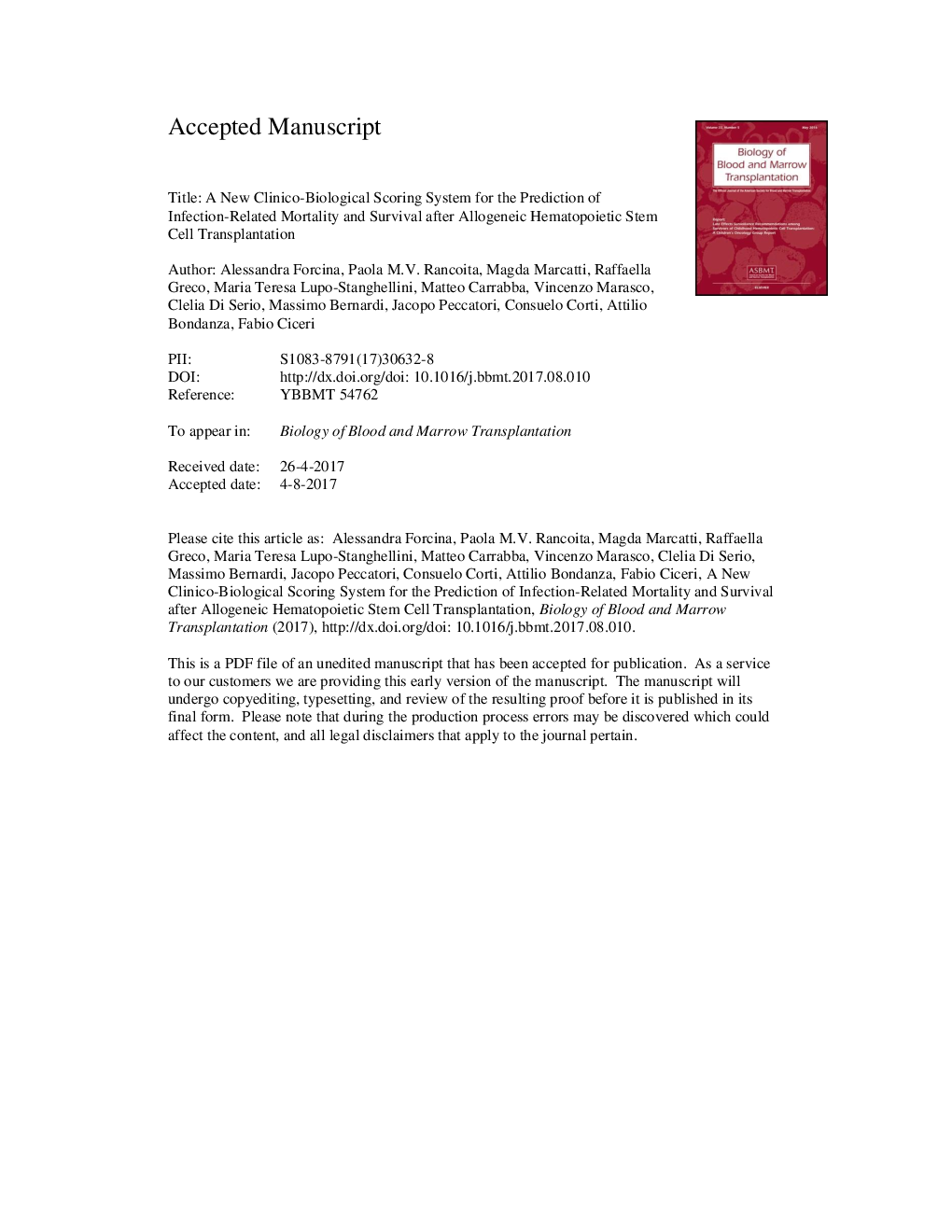| Article ID | Journal | Published Year | Pages | File Type |
|---|---|---|---|---|
| 8430751 | Biology of Blood and Marrow Transplantation | 2017 | 25 Pages |
Abstract
Infection-related mortality (IRM) is a substantial component of nonrelapse mortality (NRM) after allogeneic hematopoietic stem cell transplantation (allo-HSCT). No scores have been developed to predict IRM before transplantation. Pretransplantation clinical and biochemical data were collected from a study cohort of 607 adult patients undergoing allo-HSCT between January 2009 and February 2017. In a training set of 273 patients, multivariate analysis revealed that age >60 years (Pâ=â.003), cytomegalovirus host/donor serostatus different from negative/negative (Pâ<â.001), pretransplantation IgA level <1.11âg/L (Pâ=â.004), and pretransplantation IgM level <.305âg/L (Pâ=â.028) were independent predictors of increased IRM. Based on these results, we developed and subsequently validated a 3-tiered weighted prognostic index for IRM in a retrospective set of patients (nâ=â219) and a prospective set of patients (nâ=â115). Patients were assigned to 3 different IRM risk classes based on this index score. The score significantly predicted IRM in the training set, retrospective validation set, and prospective validation set (Pâ<â.001, .044,âand .011, respectively). In the training set, 100-day IRM was 5% for the low-risk group, 11% for the intermediate-riak group, and 16% for the high-risk groups. In the retrospective validation set, the respective 100-day IRM values were 7%, 17%, and 28%, and in the prospective set, they were 0%, 5%, and 7%. This score predicted also overall survival (Pâ<â.001 in the training set, P < 041 in the retrospective validation set, and P < .023 in the prospective validation set). Because pretransplantation levels of IgA/IgM can be modulated by the supplementation of enriched immunoglobulins, these results suggest the possibility of prophylactic interventional studies to improve transplantation outcomes.
Keywords
Related Topics
Life Sciences
Biochemistry, Genetics and Molecular Biology
Cancer Research
Authors
Alessandra Forcina, Paola M.V. Rancoita, Magda Marcatti, Raffaella Greco, Maria Teresa Lupo-Stanghellini, Matteo Carrabba, Vincenzo Marasco, Clelia Di Serio, Massimo Bernardi, Jacopo Peccatori, Consuelo Corti, Attilio Bondanza, Fabio Ciceri,
